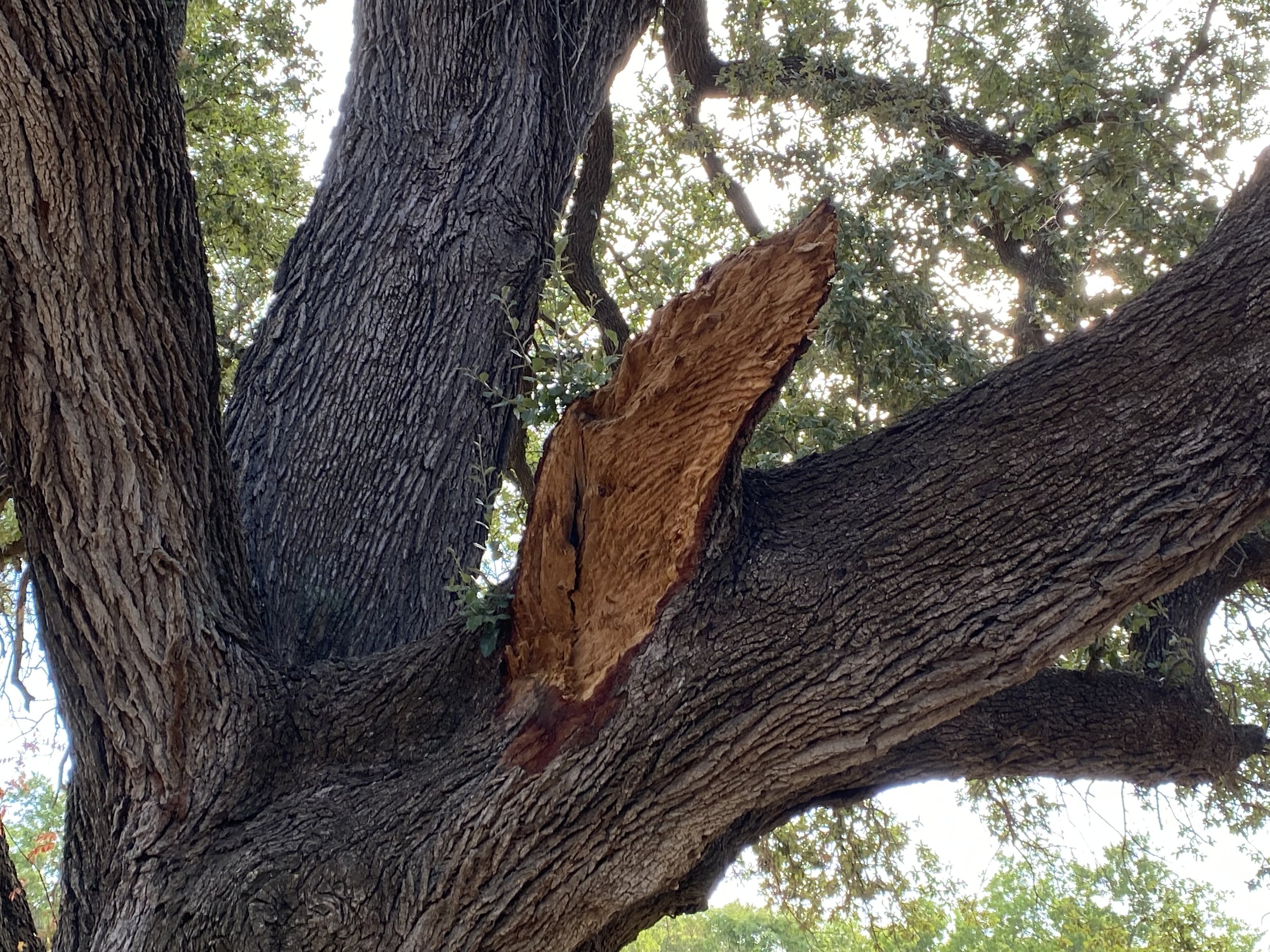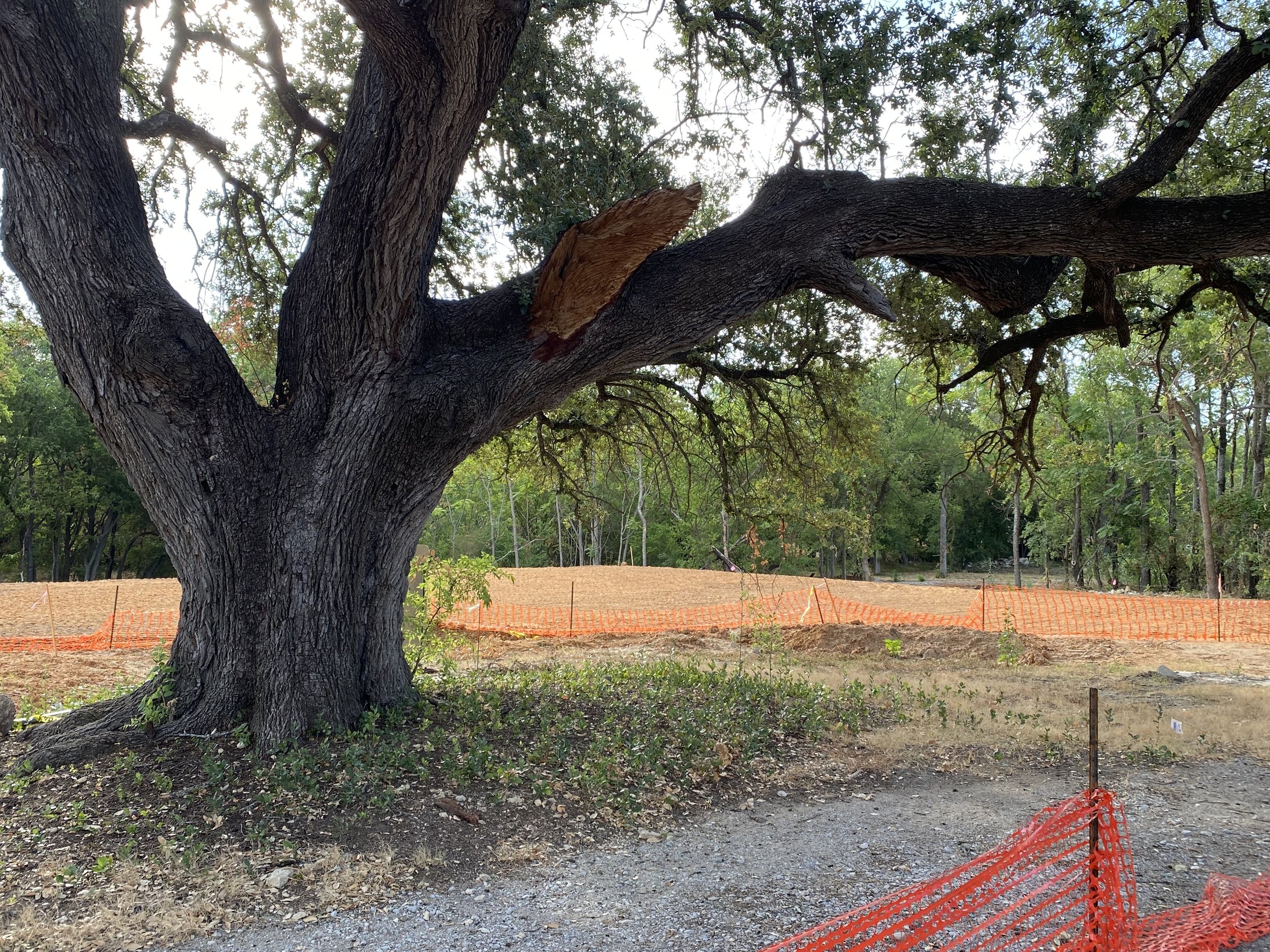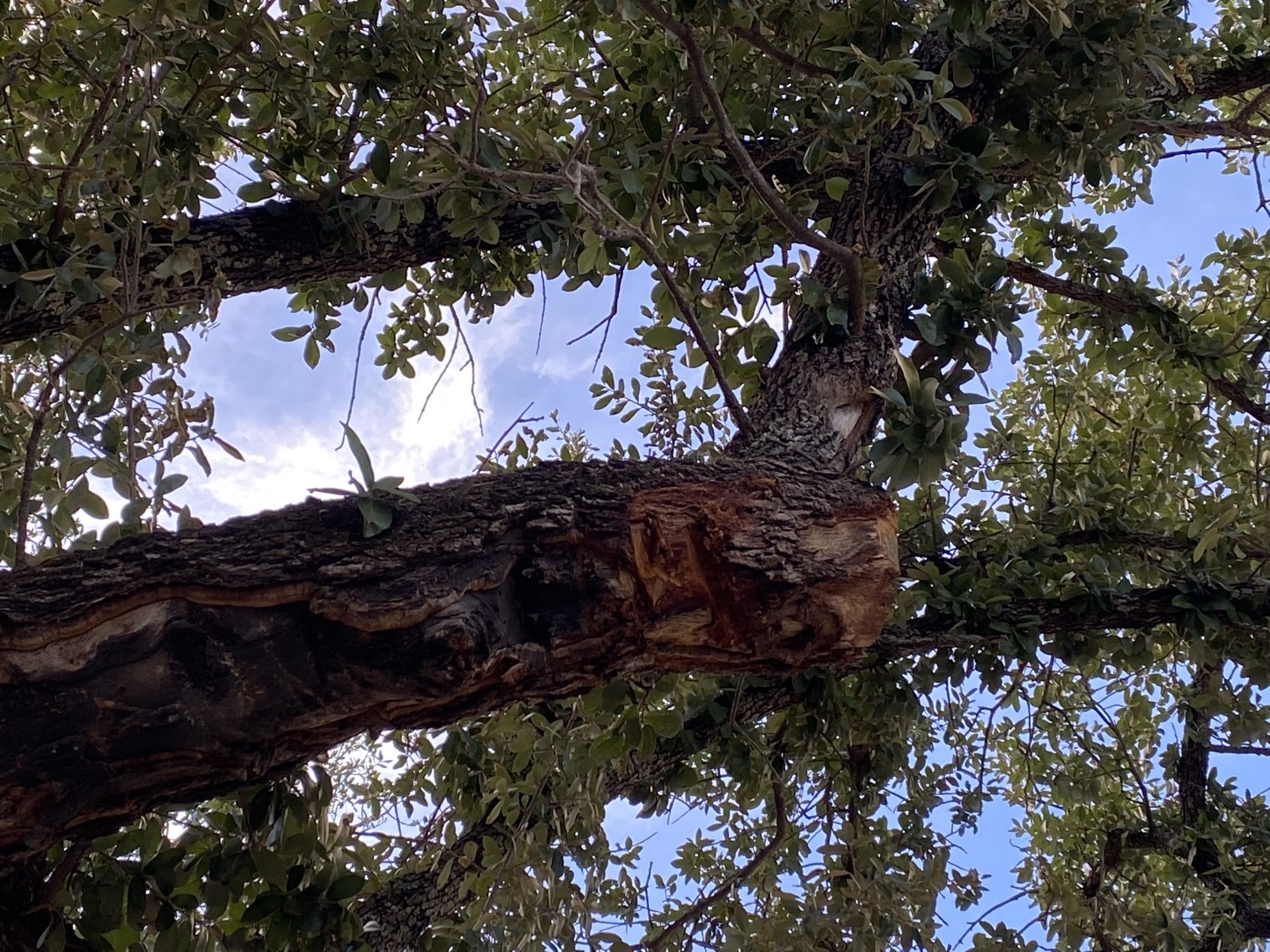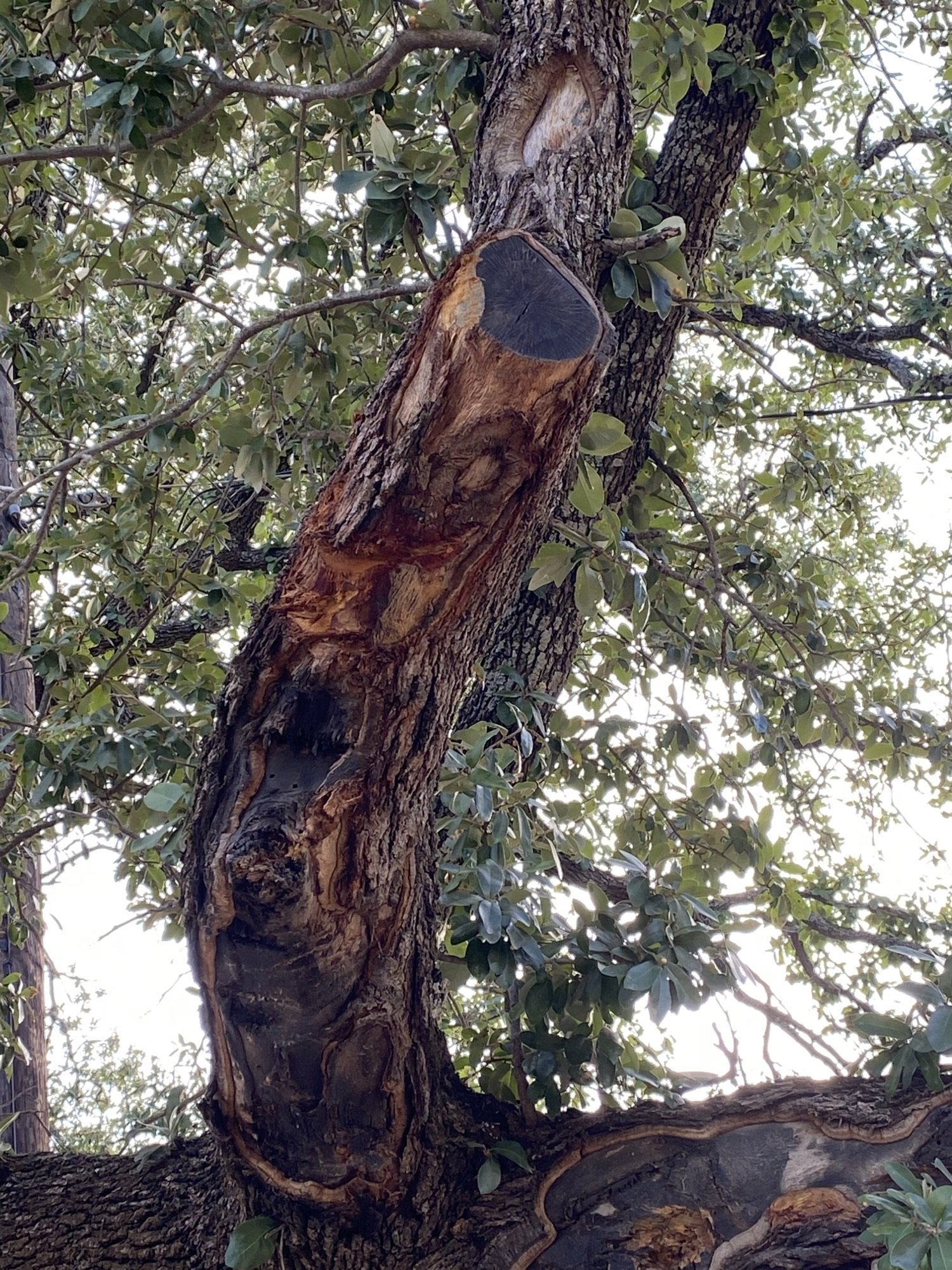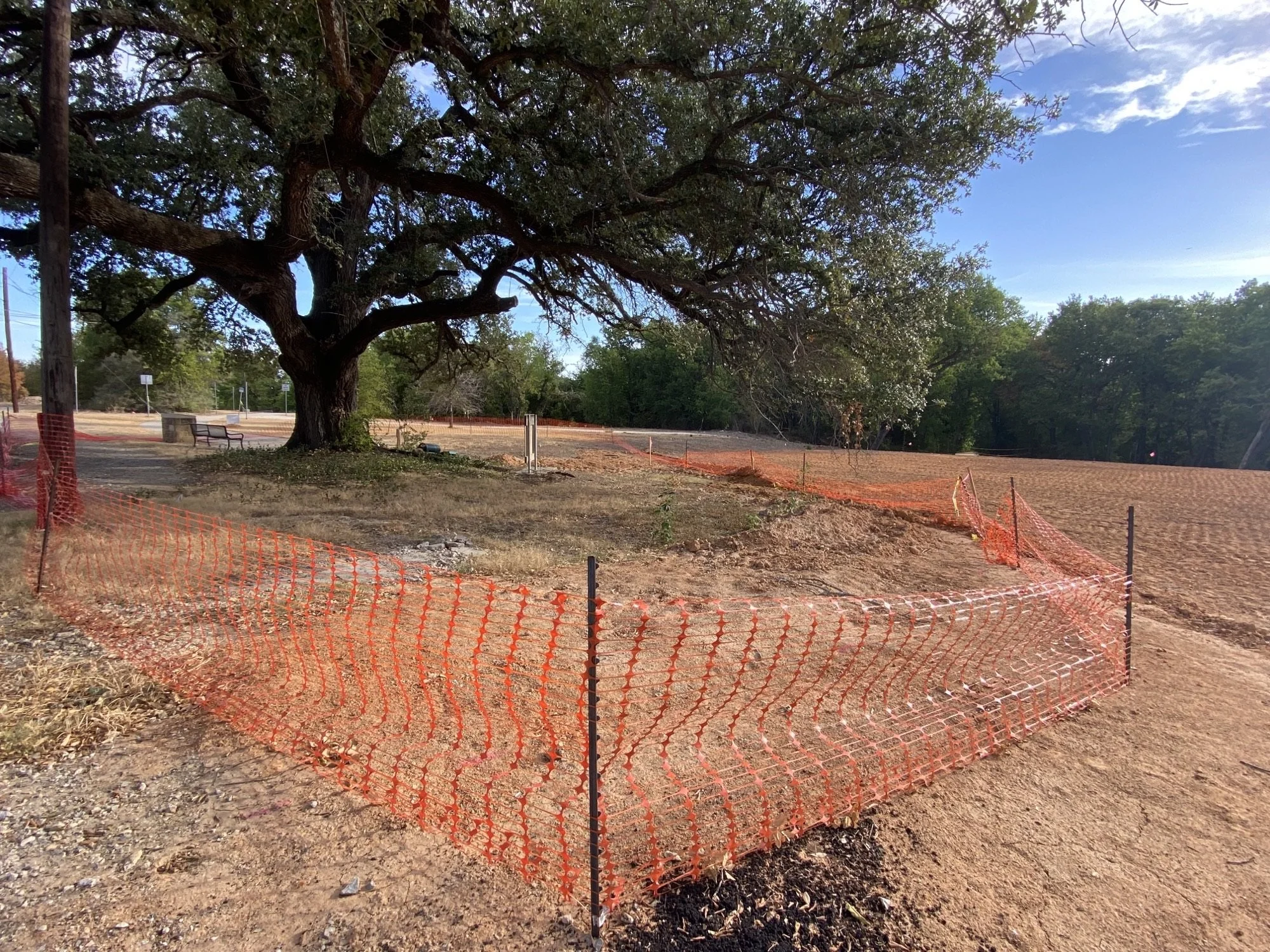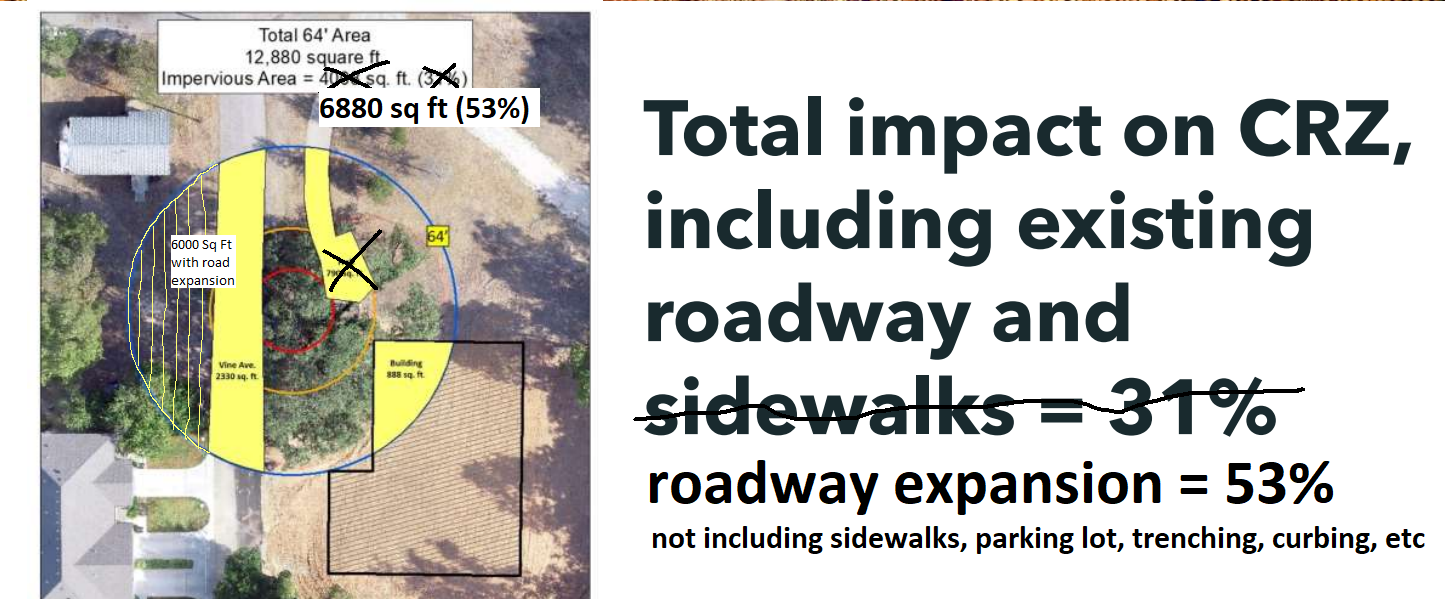You Decide Part 6: Stephenville City Code Violations
How many of its own laws has the City broken to date? How many more will they break moving forward?
An Opinion Piece
by Joe Carter
Draft Version 1.0
As of 8/12/2022
Section 132.02 of the Stephenville City Code states:
Sec. 130.02. - Injuring, cutting trees. “It shall be unlawful for any person to cut, deface or in any way injure any tree used for shade or ornamental purposes standing or growing in any of the streets or alleys, or along the sidewalks, or within any of the public places belonging to or within the city,
The City of Stephenville has a history of ignoring their own tree protection ordinance when it comes to The Seniors’ Tree. Their disregard has been demonstrated via the following actions and inaction:
In the months before construction work started at the new Senior Center target site on Vine Street, 2 different city contractors caused serious damage to the tree. The contractors’ trucks knocked huge limbs out of the tree canopy on the west side. The City is aware that its contractors caused this damage, and they know who did it. As far as we know, no one has been prosecuted or fined for causing the damage. Pictures of city contractor damage follow:
Note of clarification: The tree damage shown in the pics above was caused before construction work began at the site. It was caused by city contractors’ trucks other than the Senior Center contractor. We’ve included it to establish a pattern of neglect and failure to enforce the tree damage ordinance by the City. The tree damage violations shown in the pictures below occurred after construction started at the site.
Broken Branches
Since site preparation work started, sub-contractors spreading fill-dirt have broken branches in the tree’s canopy. No one has been prosecuted or fined for damage as far as we know.
Dirt piled over protected area of the tree’s root zone
Before the building contractor put up the protective fence, sub-contractors had piled up fill dirt over the protected area of the root zone. It’s up to a foot deep in places.
Fill dirt over the protected area of the root zone
The fill-dirt has been sitting there for over 6 weeks now. Neither the City nor the contractor has made any effort to remove it.
Future Damage Violations if Everything Goes According to the City’s Plans
In addition to 132.02 violation damage that has already been done to the tree during site preparation work to date, there will be additional 132.02 violation damage to the tree in the future. In other words, merely by moving forward with further construction activity at the site, the City is committing to violations of its own law that prohibits damaging trees on city property. We describe the inevitable damage that will be caused by future construction work below in two separate categories: tree canopy damage and root zone damage.
Tree Canopy Damage Violations
Damage from the building canopy: On the east side of the tree, the plan is for the Senior Center building to sit 35 feet from the trunk of the tree. The tree canopy hangs over at least 40 feet on the east side, so over 5 feet of the tree’s canopy will have to be removed on that side
Damage from fire truck access requirements: On the west side of the tree, it has multiple large limbs that overhang Vine Street. Vine Street runs north to south about 10 feet from the tree’s trunk. In their July 18 and July 19, 2022 meetings the City Council announced that the overhanging limbs would have to be removed to accomodate through-traffic from Fire Department ladder trucks to access the new Senior Center. They stated that these limbs would have to be removed regardless of whether the Senior Center was built near the tree because through-access is required for fire truck access to residences on Vine Street. This statement is patently untrue. Residences on the south end of Vine Street can easily be accessed by fire trucks coming from the south via Mason Street. Residences on the north end of Vine Street can easily be accessed by fire trucks from the north via Tarleton Street. The residences sit on either side of the tree. The only structure that will need through-access is the Senior Center because it will straddle the tree on both the north and the south. The fire truck access problem isn’t caused by the tree or the existing residences; it’s caused by addition of the Senior Center building to the site.
Root Zone Damage Violations
In it’s public presentations, the City Council has acknowledged the following guidelines for safeguarding the tree’s root zone:
the tree has a 64 foot critical root zone,
the root zone should not be disturbed at all within 16 feet of the tree,
the root zone should not be disturbed by any more than 4 inches of digging or 4 inches of top fill within 32 feet of the tree
no more than 50% of the 64 foot critical root zone should be covered with fill dirt or soil compaction and/or impermeable surfaces.
These City Council-acknowledged guidelines are reflected in the City Council’s diagram below:
City Council’s root zone diagram from their July 18, 2022 Special Council Meeting
CRZ stands for Critical Root Zone
[Note: The diagram is incorrect in that the 64 foot critical root zone should be measured from the edge of the tree’s 5+ foot trunk, not from the center of the tree. For sake of this discussion we’ll go with the City’s smaller root zone. Our points on tree damage are valid either way.]
Root Zone Damage Violations
Damage from widening Vine Street: In their July 19, 2022 Council Committee Meeting, a Council Member made the following comment:
“The pavement [on Vine Street] right now is 21 feet wide. … As far as ability to expand, Mr. Williams [Director of Public Works] provided this morning some maps to me that show that the city actually owns an additional 17 feet - 17.5 feet of right-of-way on the west side [of Vine Street]. So there certainly is the capacity to be able to expand should that need arise…If there becomes traffic issues in the future and quite honestly let’s hope there is because that means that’s a very busy area which is our goal is that it’s a busy Senior Center and a busy area and revitalizing that area we do have the right-of-way there that would allow us to expand that roadway capacity on the west side of the street so that would not cut into the tree.”
To verify this statement, reference this video of the July 19 City Council Committee Meeting starting at the 43:45 point.
So, it’s clear from this statement that the City plans to widen Vine Street assuming their plans for increased traffic at the new Senior Center are realized. By widening Vine Street, any root zone on the west side of Vine Street will be permanently destroyed. Even assuming that the old trail paving is removed, widening Vine Street will push the root zone damage well over the City Council-acknowledged 50% root zone damage level. The total root zone damage is shown in this modified version of the City’s root zone diagram:
Critical Root Zone (CRZ) impact from widening Vine Street
It’s not sufficient to say, “Let’s just wait to see if our attendance goals are reached before we make a decision on this issue.” Once the building is built, it will be too late to turn back. The time to anticipate the future impacts of the building are now, before it’s built. The damage will be done from the point construction moves forward at the site.
Root zone damage violations from correcting drainage problems at the site: The building site slopes downhill from northwest to southeast. At present, the natural contour of the site will take runoff from about 2 acres above Tarleton Street and direct it to a low spot about 12 feet from the base of the tree. At that point, the runoff will be blocked from going any further by the built up foundation pad and the building itself. This runoff water will have to be channeled either east or south along the edges of the building or southeast in a tunnel under the building. Any of these solutions will require trenching within the critical root zone. The trenching will permanently destroy any roots that cross the trench. Another solution might be to radically change the contour of the site uphill from the building. This re-contouring will also damage the root zone. Another partial solution might be to add curbing to Vine Street. This will also require trenching and permanent root zone damage within the critical area. We can’t foresee any solutions to the drainage issues at the site that don’t require significant damage to the tree’s root zone. If the City has a workable plan they haven’t shared it.
Root zone damage violations from other construction artifacts: As you can see from the City’s root zone diagram, they have assiduously avoided revealing where other necessary components of the construction project will sit relative to the tree’s root zone. The following are some of the additional items that may result in tree damage violations within the root zone:
parking lot(s)
covered drop-off lane
sidewalks
stairway from the parking lot (note: the parking area is above grade from the building)
wheelchair ramp from the parking lot
landscaping
trenching for sprinkler systems
trenching for gutter downspouts
trenching for outdoor pathway lighting
HVAC pads
dumpster pads
dumpster access lanes
trenching for water lines and water meter
trenching for electrical service
roof overhangs
covered walkways
etc.
We won’t know the full extent of the City’s root zone damage violations until are all of these types of items are specified in detail. If the City is indeed committed to staying under the 50% root zone damage guideline and avoiding any damage whatsoever within 32 feet of the tree, doing so is going to come at great additional expense. That’s if it can be done at all. Why not just build the building somewhere else that doesn’t have to deal with these constraints?
